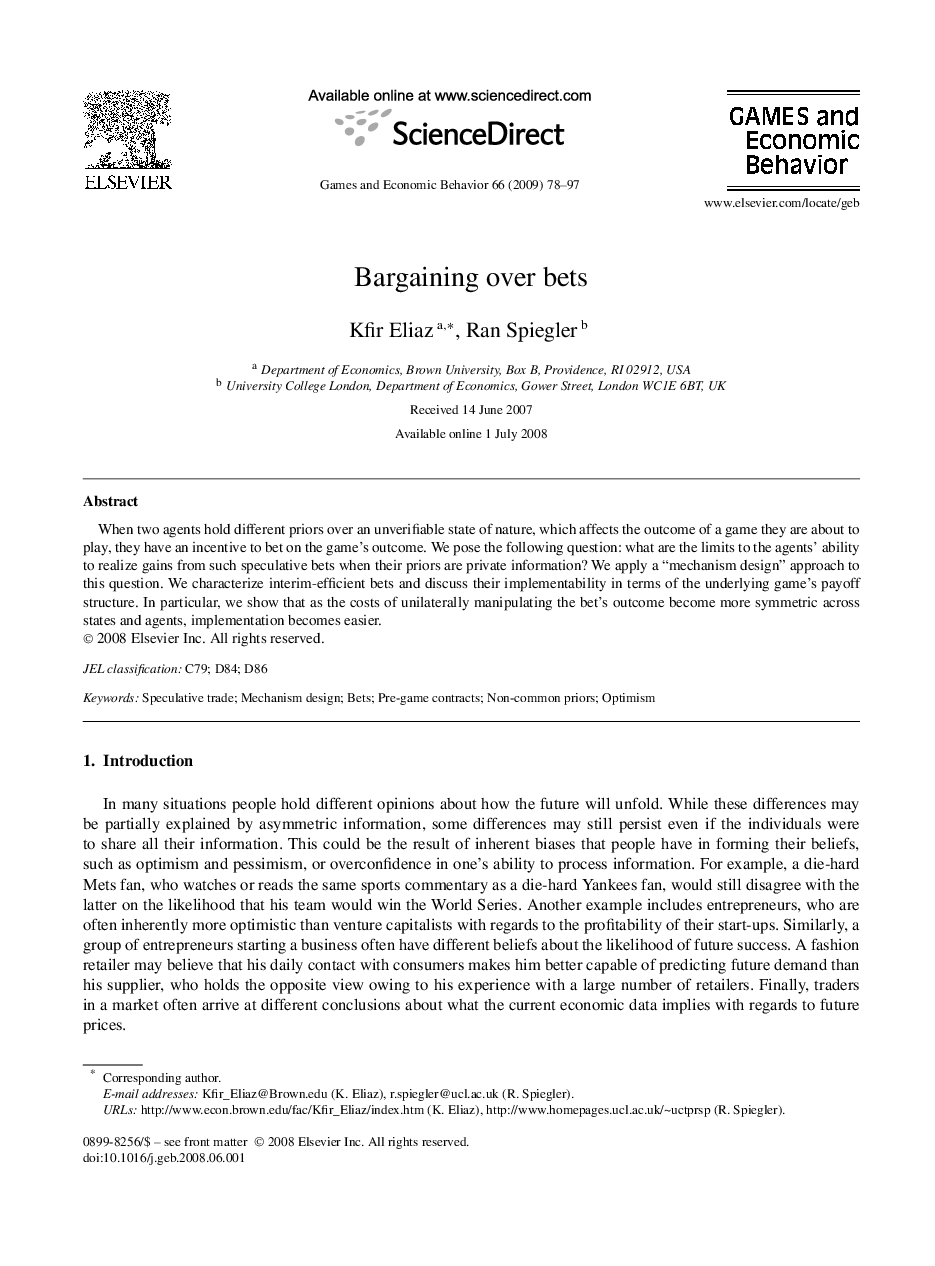| Article ID | Journal | Published Year | Pages | File Type |
|---|---|---|---|---|
| 5072824 | Games and Economic Behavior | 2009 | 20 Pages |
Abstract
When two agents hold different priors over an unverifiable state of nature, which affects the outcome of a game they are about to play, they have an incentive to bet on the game's outcome. We pose the following question: what are the limits to the agents' ability to realize gains from such speculative bets when their priors are private information? We apply a “mechanism design” approach to this question. We characterize interim-efficient bets and discuss their implementability in terms of the underlying game's payoff structure. In particular, we show that as the costs of unilaterally manipulating the bet's outcome become more symmetric across states and agents, implementation becomes easier.
Related Topics
Social Sciences and Humanities
Economics, Econometrics and Finance
Economics and Econometrics
Authors
Kfir Eliaz, Ran Spiegler,
